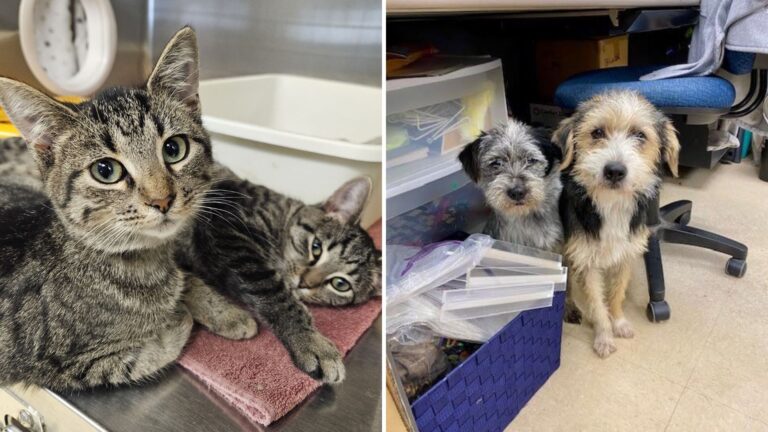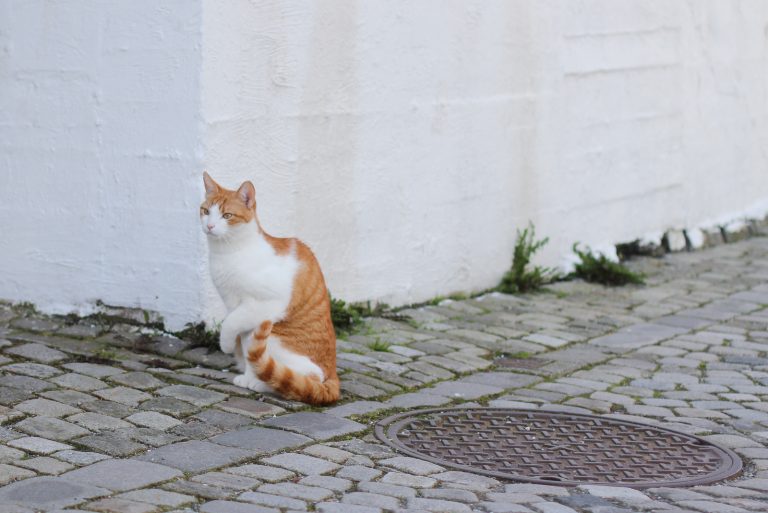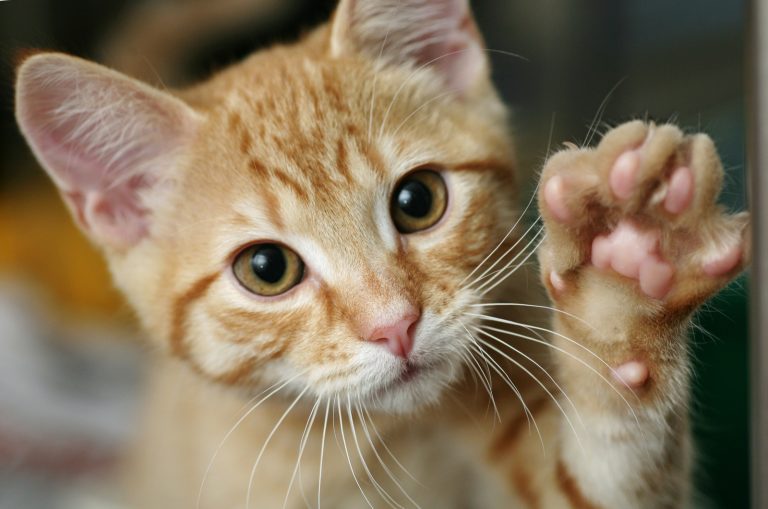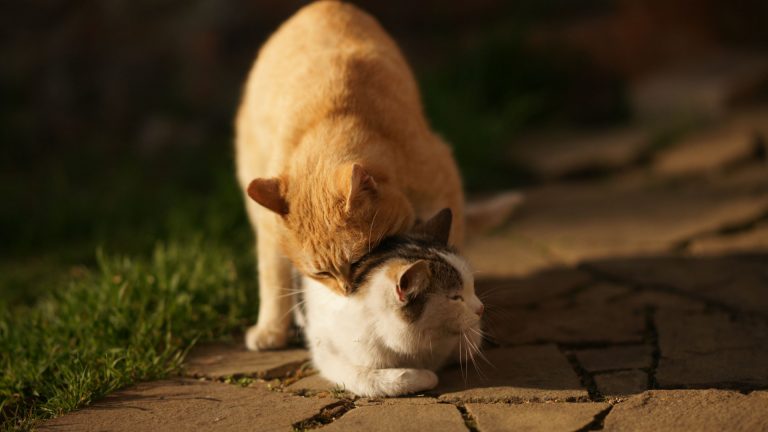Can Kittens See In The Dark – Get To Know Your Kitten’s Eyes
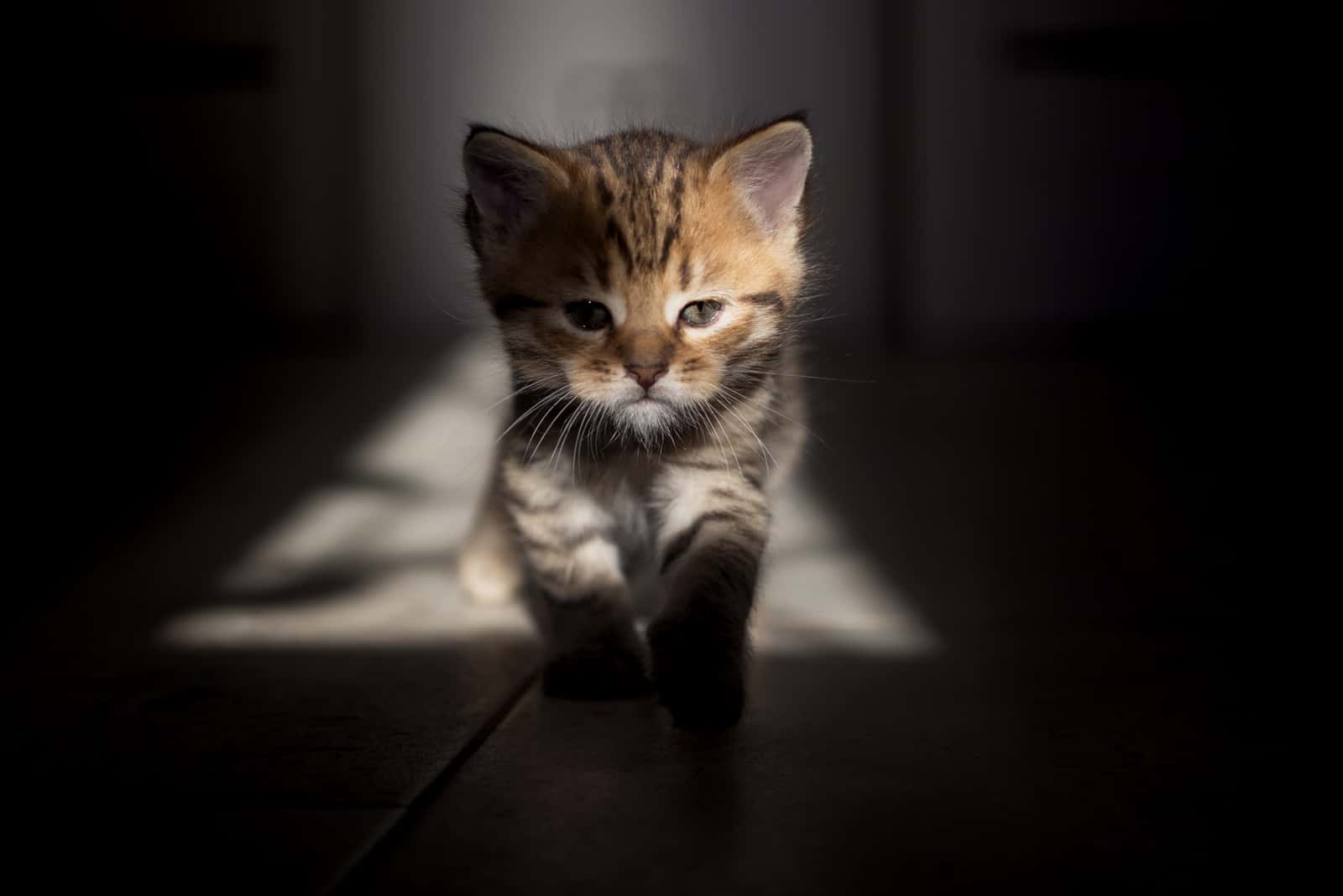
If you’re a new kitten owner and haven’t had a cat before, you probably want to learn more about your fluffy baby kitten in order to take proper care of it as a responsible cat owner.
It is a well-known fact that cats mostly sleep during the day, and then in the evening they decide that it’s showtime! You must have asked yourself this question many times…Can kittens see in the dark?
Let us explain how and why kittens can “see” in the dark!
Can Kittens See In The Dark?
When kittens are born, they take about nine to fourteen days to open their eyes. After they open their eyes, they take a little while to see clearly. Later on, as adult cats, they have great night vision, but they are not able to see in complete darkness.
So, the answer to the question can kittens see in the dark is no. But, that doesn’t change the fact that they have much better night vision than us. The reason for that is the tapetum lucidum which is essentially a reflective area, like a mirror, in the back of eyeballs causing the “eyeshine” you might see when your cat’s eyes catch the light.
Cats’ corneas and pupils are way bigger than ours and that is the reason a cat’s eye receives seven times more light than a human eye.
This helps them see extremely well at night when there is low light. This is the reason you see your cat’s eyes glowing every time you turn off the lights.
Should I Leave A Light On For My Kitten?
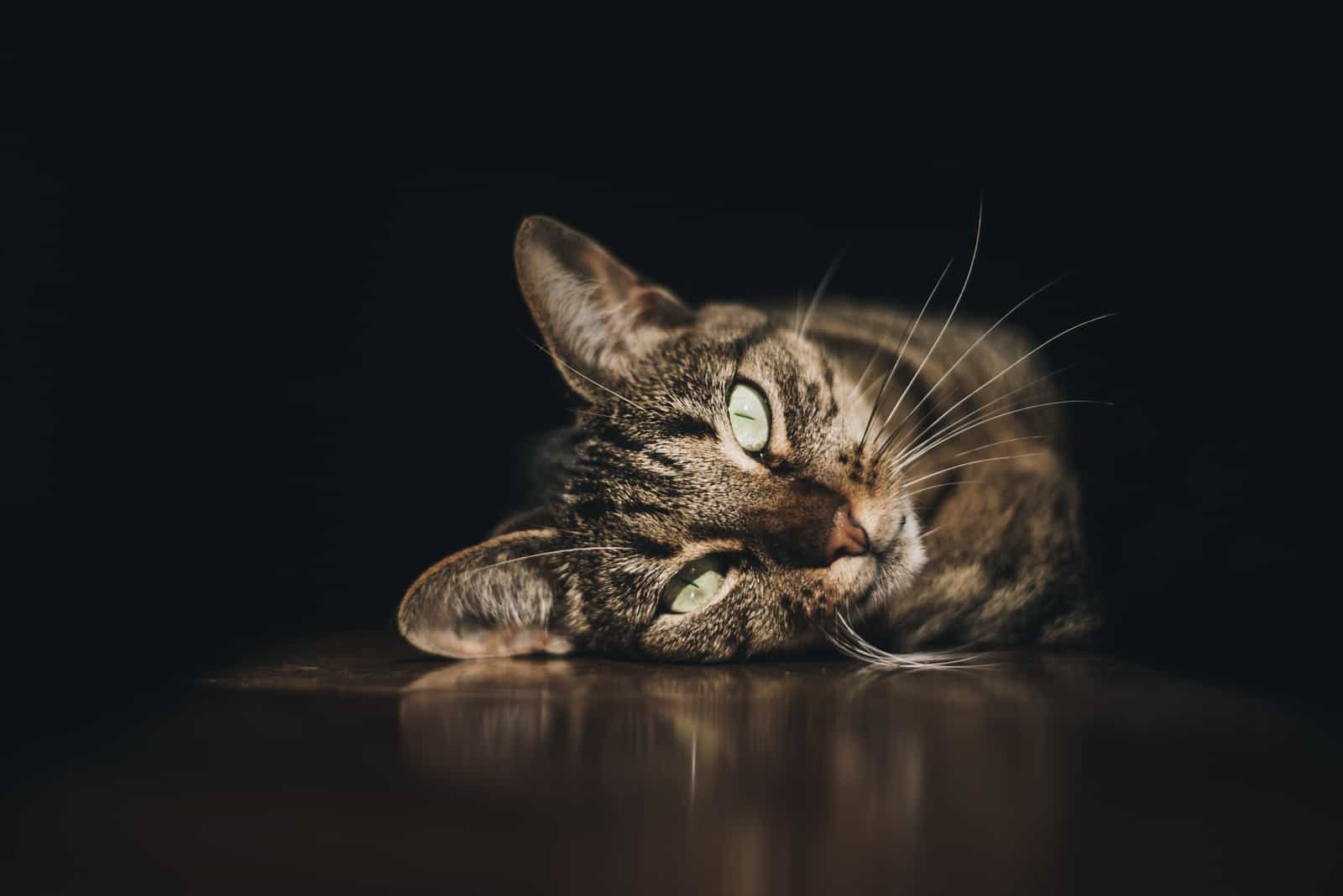
To help your kitten develop a routine, it is better not to leave the light on. Kittens and cats have a pineal gland that regulates melatonin production. Melatonin is a hormone that calms the body down which will make your kitten feel sleepy-sleepy.
However, total darkness is not recommended. It is better to leave some dim light in case the kitten wakes up in the middle of the night and wants to go to their bowl of water or food. The kitten also might decide to disturb your dreams with their meows.
Is It Okay For Kittens To Be In The Dark?
If your feline friend is younger than six months, it is recommended that you do not leave her alone at night because she may be afraid during this period. Try leaving a nightlight on because kittens can’t see in complete darkness.
New cat owners may be worried about their pets and do not enjoy the idea of leaving their new kitten alone at night. A kitten needs at least two months of socialization with the mother cat before they can be separated.
When your kitten grows a little, you don’t have to be in such constant contact because the cat should adapt to being alone at that age.
Where Should My Kitten Sleep?
You may want your kitten to sleep in a bed tucked up next to you as all cat owners want to keep their pets close, but that may not be the safest option.
You should provide a bed in a dark room with a small night light for your kitten. Your bedroom should be totally fine as long as you and your kitten can agree on it!
Whichever room she sleeps in, you should provide a comfy cat bed where the kitten will be warm and safe. Also, make sure that there is no bright light because this can affect kitten sleep.
How Good Is Cat’s Night Vision?
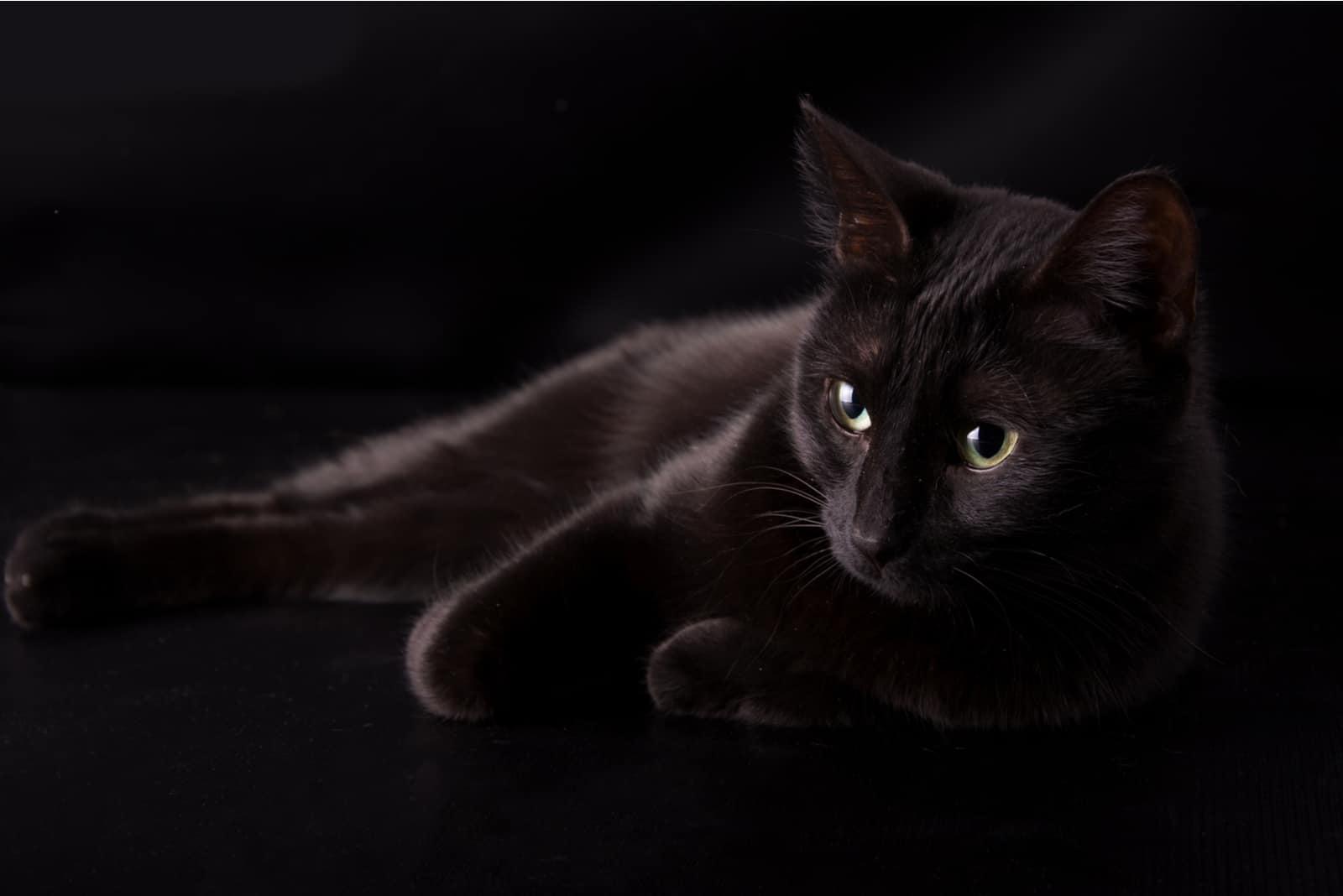
The retina is a thin membrane located at the back of the eye containing photoreceptors. When light reaches this, it bounces off the tapetum lucidum through the retina and bounces back out of the cat’s eyes.
When their eyes reflect this light, the cat’s eyes may seem to be glowing and shining. Although they have a superior ability to see better in the dark, they can’t detect colors and far away objects as well as humans can.
Cats’ vision is not as far-sighted as human vision. You can sometimes put some food in front of their noses and point to it, and they don’t see it because of their short eyesight.
Are Cats Nocturnal Or Crepuscular Animals?
First, let’s discuss the difference between these two. Nocturnal animals are active at night rather than during the day.
At night, they mate, hunt, and hide from predators.
Although they hunt at night, cats are mostly active at dusk or dawn, making them as crepuscular animals. They need low levels of light to be able to move as freely as possible, which means their vision is not perfect in complete darkness.
Cats rely a lot on their ears when they go hunting, and they sniff everything to be aware of their surroundings. The reason for their enhanced sense of smell is Jacobson’s organ. Having the ability to hunt in the dark is very important since cats are both predators and prey.
Cat’s Glowing Eyes
Cat’s eyes don’t glow but they do reflect any light that they are exposed to. That glow can be seen in a variety of colors and you may mostly see it in blue, green, or yellow.
The zinc in a cats’ eyes is responsible for determining eye color. All kittens are born with blue eyes, but as they get older their color is probably going to change.
How Far Can Cats See In The Dark?
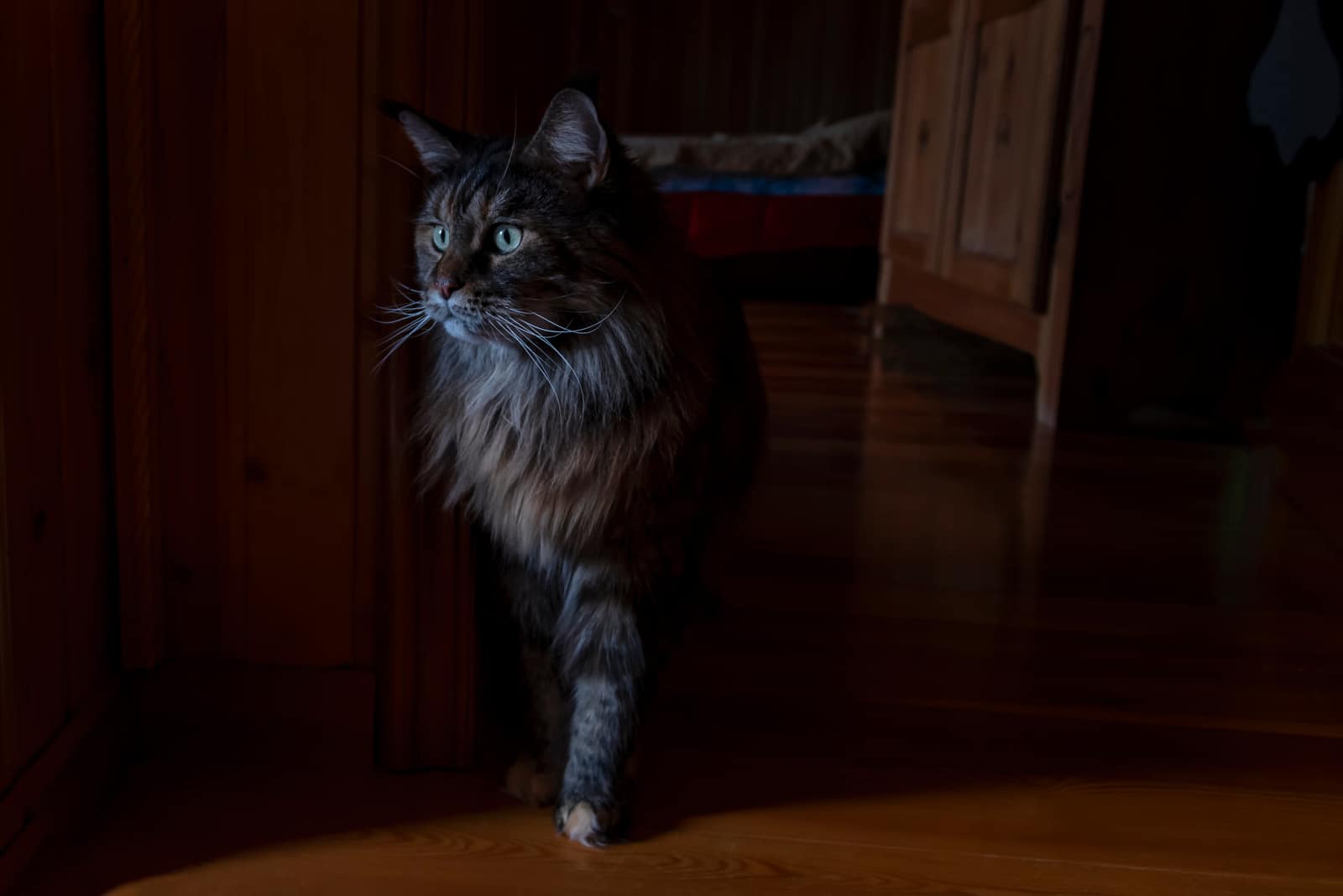
Unlike human eyes, cat eyes only need one-sixth of the light to see clearly. Cats can see 200 degrees with their peripheral vision, unlike humans who have a peripheral vision of 180 degrees. Cats can see much farther in the dark than we can.
They also see objects and movement best at a distance of two or three feet away. Thanks to a large number of rod cells and a curved cornea in their eyes, cats see less detail, but they are best at seeing quickly moving objects with their night vision goggles.
Cat’s Eyes Vs Human Eyes
Cats are dichromatic, which means that they see two groups of colors. It is difficult for them to distinguish red, green, and yellow, but cats can see blue, purple, and violet. People are trichromatic as we distinguish red, yellow, and blue.
While we can see a toy swinging 10 meters away from us in the Pet Shop, a cat must be extremely close to see the same toy with the same clarity.
However, cats in low-light situations see way better than we do. So, with your great ability to distinguish colors and your feline friend with their great night vision, together you would be a perfect team for nighttime adventures.
Why Do We Think That Cats “See” Better In The Dark?
As well as vision that allows them to see well in low light conditions, cats have developed special adaptation known as sensory interpretation.
Using their whiskers as navigation, cats have a great sense of direction and movement. A cat’s nose is more advanced than a human’s, with twice the number of olfactory receptors. Cats also have very sensitive hearing and can locate where distant sound comes from.
Cats can also hear quiet, high-pitched sounds from great distances. When a cat hears an unusual sound, you can see its ears turn like receivers to point in the direction the sound is coming from.
Cat’s back paws step into the same places as the front paws. They do this to avoid stepping into dangerous places, because the front paws have already checked the territory first.
With all these adaptations, it is no wonder that they move so deftly in the dark.
How Does A Cat Hunt At Night?
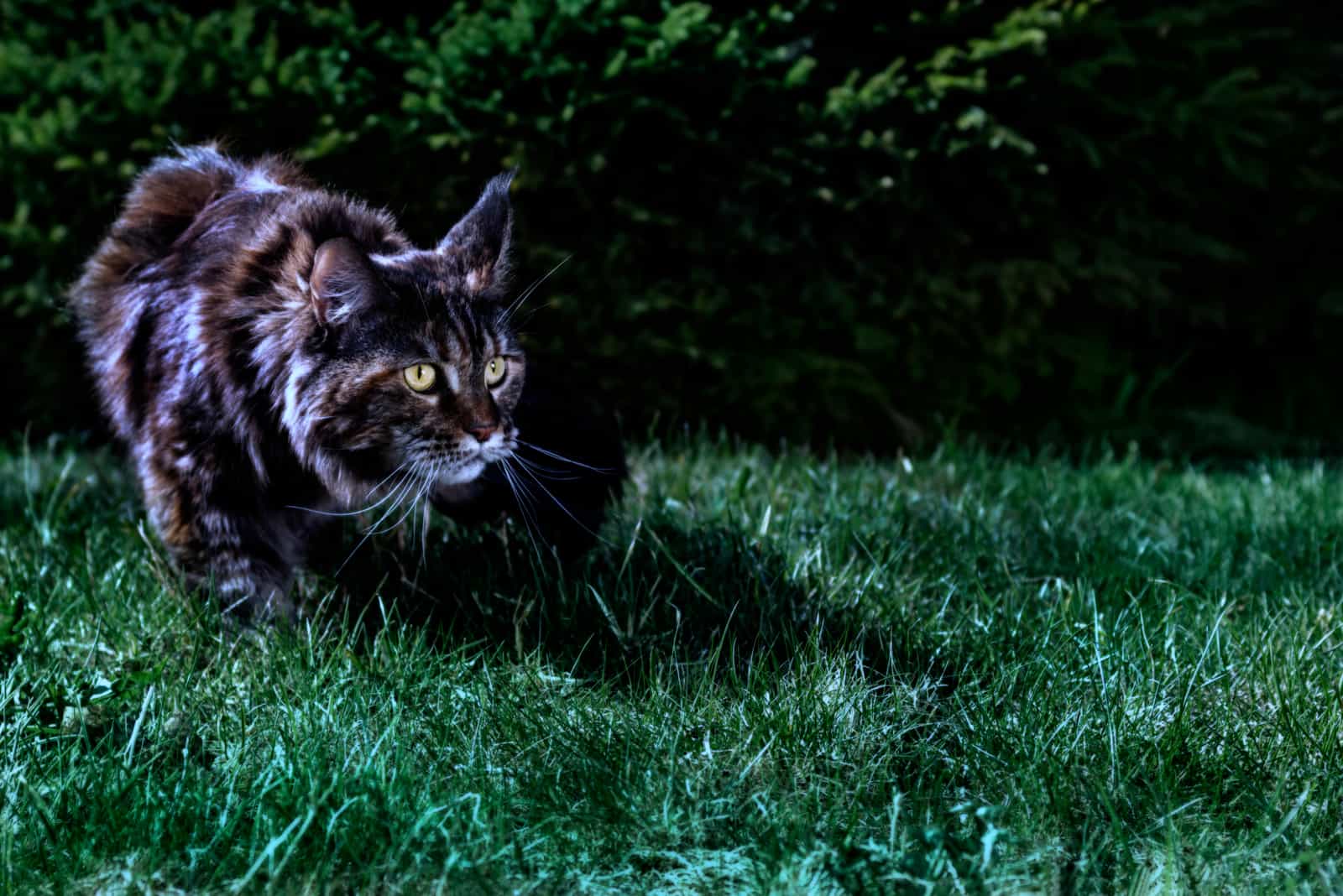
Whiskers are especially important, in fact vital, when a cat hunts in the dark.
We know this thanks to studies that have shown that cats with perfect whiskers kill just as accurately in the dark as during the day. A cat whose whiskers are damaged can only kill its prey during the day because at night it misjudges the jump and tends to attack the prey at the wrong angle..
This means that in the dark when the sense of sight is not as good, healthy whiskers serve as an extremely sensitive guidance system.
Only with the help of whiskers can a cat hunt effectively in low light or find its way in complete darkness when it cannot see the route.
In a way, the tips of the whiskers capture “data” on the position of prey or the area the cat is moving through.
Are Cats Afraid Of The Dark?
Although cats cannot see in pitch-black darkness and need a small amount of light, most cats are not afraid to be in the dark. If a cat is afraid of the dark, it may be a sign that they have experienced past traumatic experiences in darkness.
Even though kittens can see in low levels of light, it’s still a good idea to keep her night light on, especially when the kitten is new to your home. The night light may help her adapt to her new environment.
Final Thoughts
So, the initial question was can kittens see in the dark? And, once again, the answer is that kittens can’t see in total darkness, but thanks to tapetum lucidum and a specially adapted retina, they have great night vision when there is low light.
Because of that, their eyes reflect light so you can see them “glowing”.
Their peripheral vision differs from ours. They are crepuscular animals that are most active at dusk and dawn. That’s why they have some evolutionary adaptations like sensory interpretation, great hearing, and whiskers.
All of that helps them to “see” better at night. Due to these facts, a myth arose that cats can see in total darkness because they are very quick and clever in a nocturnal environment thanks to all these adaptations.
Cats aren’t usually afraid of the dark, but it’s a good idea to leave a night light in the room where your kitten is sleeping or even sleep in the same room until the kitten gets used to being alone.
As a cat owner, you need to have a comfortable bed for your kitten, provide them with food and water, and adore her; there is no need to worry.
Related Articles:
Causes Of Kitten Eye Infections +Treatment Options

